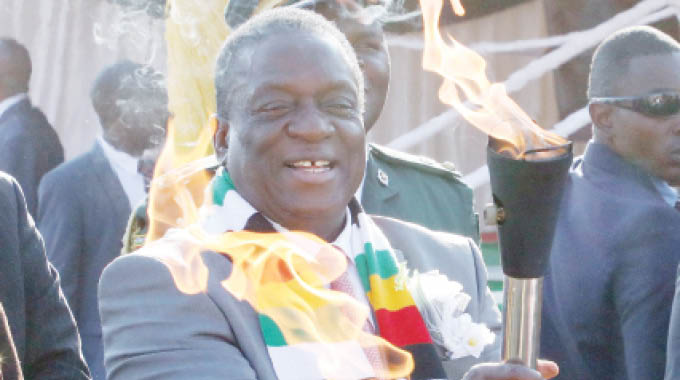Treasury commits to upgrade roads

Leonard Ncube in Victoria Falls
TREASURY has pledged to prioritise rehabilitation of the country’s dilapidated road network as the infrastructure is critical in transforming the economy.
Finance and Economic Development Minister, Professor Mthuli Ncube, told delegates during a recent local authorities conference here that some of the country’s roads will be game changers to the economy if upgraded.
He said his office has already identified trunk and feeder roads that need urgent attention in all the country’s provinces as part of the many projects aimed at ensuring attainment of an upper middle income economy by 2030.
Prof Ncube said Dete-Binga, Binga-Karoi, Kwekwe-Nkayi-Lupane and Lupane-Hwange roads were some of those that need immediate attention.
“Ninety percent of the projects in the Transitional Stabilisation Programme matrix are located in the rural areas and as such you are the implementers,” he said.
Minister Ncube said Government was committed to rural roads development.
“ I have a list of every key road and here in Matabeleland North my favourite road is the Kwekwe-Lupane-Hwange-Victoria Falls Road. This road is a game changer and will reduce distance between Harare and Victoria Falls by about 200km,” said Prof Ncube.
He said the worst part of the Kwekwe-Lupane Road was the stretch from Nkayi towards Lupane, popularly known as “Fighting Road”.
Prof Ncube, however, said the roads will not be done in a single year.
“We cannot do some of these roads in one year but it’s a multi-year plan and we have to stay committed. A road is an economy. When you build a road in a poor rural area, in five years everything changes and people will even be embarrassed to build shacks near it,” said Prof Ncube.
He challenged rural district councils to identify all roads, small and big, in their areas of jurisdiction in preparation for an overhaul. The Minister said a reliable road network has a positive effect on access to social services in remote areas.
“As RDCs you must keep records of all road networks both trunk and feeder roads. We always need feeder roads so rural farmers can get to the market while children are able to go to school and women can seek health services at clinics even during the rainy season. So what you need to do as RDC chairs is to keep an eye on the number of feeder roads in your district because you take care of 70 percent of the population,” he said.
Prof Ncube said Government is keen on using the Rwanda model where the number and length of feeder roads developed annually is a monitored deliverable for local authorities.
He proposed a service delivery competition for local authorities, a model also borrowed from Rwanda. — @ncubeleon.











Comments